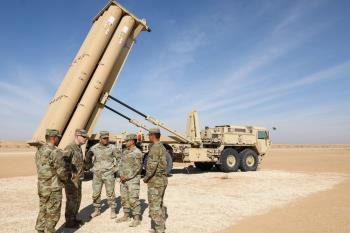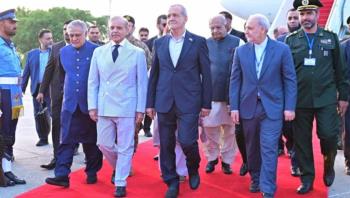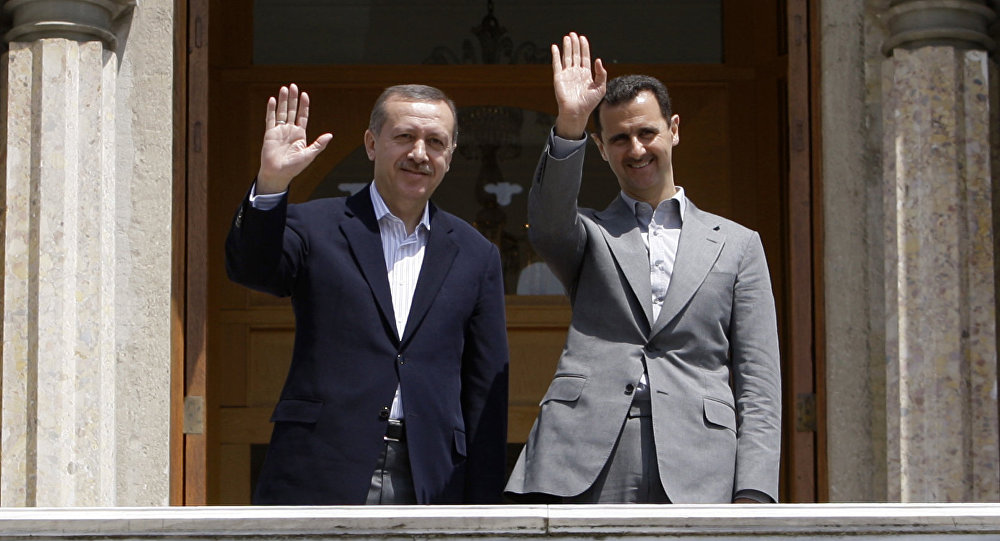Alwaght- Since the onset of Syrian crisis Turkey has stood by the terrorist groups and against the Syrian government. Turkish support for such groups was increasingly extensive so that many believed Erdogan’s government is the secret buyer for ISIS oil from occupied regions.
Though, on the other side of the border, Syrian crisis was imposing heavy costs on Turkish international affairs. Erdogan did not stop at diplomatic support for terrorist groups and went on taking practical steps that led to the shooting of a Russian fighter and deteriorating relations between the two old allies.
After the incident in last November, Russia retaliated with economic sanctions that hit Turkey's tourism, agriculture and industry sections. On the other hand, Iran’s full support for President Assad's government and Turkish hostile stance led to alienation of the two powerful regional players.
The failed coup against Erdogan, however, changed the political course in Turkey and pushed it to a more cooperative stance on Syria. Iranian Foreign Minister Mohammad Javad Zarif’s surprise visit to Turkey may always be remembered in Ankara, as well as in Tehran, for having opened a new chapter in regional cooperation between the two neighbors. The visit was the first by an Iranian official since the failed July 15 coup to overthrow Turkish President Recep Tayyip Erdogan.
As such, it was part of Tehran's show of solidarity that began during the coup attempt, with phone calls from Zarif, Ali Shamkhani, the secretary of Iran’s Supreme National Security Council, and Qasem Soleimani, the head of the Islamic Revolutionary Guard Corps’ Quds Force.
At first glance, there does not seem to be an immediate connection between the two issues. But the effects of the failed coup could play out in many different and contradictory ways for Syria, where Turkish President Recep Tayyip Erdogan’s government has long been one of the most hawkish supporters of terrorists against President Bashar al-Assad’s government. Even a slight shift in Ankara’s Syria policy could have significant consequences for the war—and if Erdogan had been toppled, it could easily have been a game-changing moment in the conflict.
As it happens, Syria has been on the mind of policymakers in Ankara for some time. Turkey’s Syria policy is widely felt to have reached a dead end, with the failure of the insurgency to coalesce into a credible alternative to Assad. The Syrian army’s recent victories in Aleppo and Damascus have also weakened and demoralized the militants. In addition, the steady rise of Syrian Kurdish groups aligned with the Kurdistan Workers’ Party, or PKK has become a major concern for Turkish officials, and some have argued that this will prompt a recalibration of Erdogan’s Syria policy.
Though the failed coup led to the purge of opposition forces in Turkey leaving Erdogan in a more powerful position, a stronger Erdogan does not necessarily mean a stronger Turkey. The tense political situation and the sheer scale of the purge may weaken the government and make it less able to efficiently promote its interests in Syria. If so, Ankara could be forced to scale-down its involvement to more manageable levels or hand over influence to allies who do not fully share its goals. Then again, having a more unstable military and policymaking apparatus, and less oversight from a much-too-busy central government, could also translate into more reckless policies in Syria.
Turkey’s options in Syria to a large part depend on its relations with Iran and Russia and this makes even more sense when we remember that a few days after the attempted coup, Russian Foreign Minister Sergei Lavrov stressed that the evolution of the Russian-Turkish relationship “will depend on how we will cooperate on the settlement of the Syrian crisis.” Turkish officials have not yet reacted, but they have signaled their desire to continue to improve relations with Moscow. Soon after the coup had been put down, Deputy Prime Minister Mehmet Simsek seized the opportunity to blame the shooting down of the Su-24 on anti-Erdogan elements. Cavusoglu also recently praised Russia’s “unconditional support” after the attempted coup. In other words, the Russian-Turkish discussions about Syria can be expected to continue.
Maybe not quiet what Russia wants, but in the latest efforts to change side in Syrian war, Turkish Prime Minister Binali Yildirim has vowed Ankara would play a "more active" role in the next six months in efforts to end the five-year Syrian crisis and work towards normalizing its relations with its neighbors in the Middle East.
"We say the bloodshed needs to stop. Babies, children, innocent people should not die. That's why Turkey will be more active in trying to stop the danger getting worse in the next six months, compared with before," Yildirim told foreign reporters in Istanbul.
Finally it seems Turkey’s policy in the West Asia since 2011, once described by an adviser to Mr Erdogan as “precious loneliness”, has failed to pay dividends. Instead, it has left the country exposed to ISIS attacks, a renewed war in its Kurdish south-east, and tensions with allies. It is no surprise that Turkey has turned more genial; it needs all the friends it can get.



























